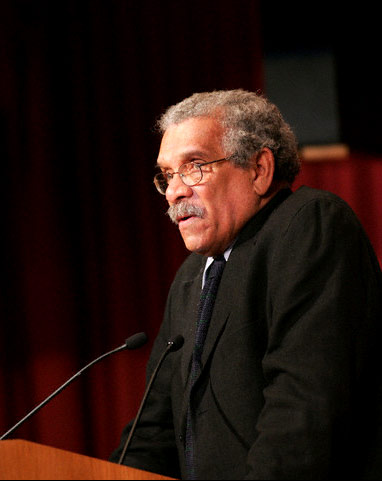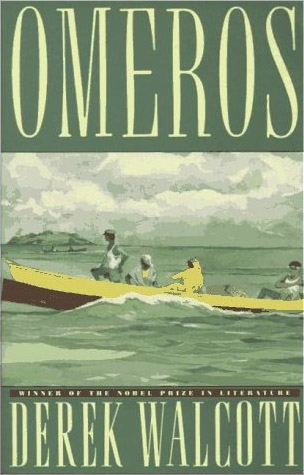
My friend Erin, despite liking Omeros, really hates Derek Walcott. Why? Because he apparently claims that he is writing poetry for the Caribbean people. But, as Erin has argued to me at least ten times in the past eight months, writing for the Caribbean people is pointless because the literacy rates in the Caribbean are so low.
So, a few weeks ago, I was flipping through the 2009 Pushcart Prize, which I originally bought for a class I’ve since finished. I happened upon Walcott’s “White Egrets,” which is apparently from Epiphany.
As with so many things in my life, it was love at first read. At one point, he described something as curved as an ampersand, which is one of the coolest descriptions I’ve ever read.
Reading Walcott made me wonder how right Erin was or wasn’t about him.
I know that I am a researcher at heart, and when I come upon a problem, I go looking for answers.
 I discovered that literacy rates in the Caribbean, in the mid-80s, were generally 90%. As the eighties went on, literacy slipped in almost all countries. Omeros was published in 1990, which means that at the time he was writing, he was probably thinking about keeping the literacy rates afloat.
I discovered that literacy rates in the Caribbean, in the mid-80s, were generally 90%. As the eighties went on, literacy slipped in almost all countries. Omeros was published in 1990, which means that at the time he was writing, he was probably thinking about keeping the literacy rates afloat.What frustrates me about Erin’s claim that no one in the Caribbean can read is that it assumes that all non-Western countries are automatically incapable of providing education to their citizens. It also assumes that there is no difference in literacy rates over time; that for these countries, it’s always been low. That’s not the case.
What I suspect Walcott was trying to do was to begin creating a literature for the Caribbean. How many Caribbean writers can the average American citizen name? (Most are ignorant of Hemingway’s love of the region.) As Franz Fanon explains in The Wretched of the Earth, non-Western countries are culturally dominated by the West. What those non-Western countries need and deserve is a literature that they can claim as their own: written by, for, and about them. Walcott, a native of Saint Lucia, in writing stories for and about the Caribbean, contributing to a small group of Caribbean writing, including Jean Rhys, Claude McKay, Julia Alvarez and even Aime Cesaire, who inspired Fanon, pictured below.
 Obviously, Walcott can’t do it alone, and I can’t imagine that he doesn’t know that. But we should not discount his writing, or his mission, just because of the unfortunate news that literacy rates are down in the Caribbean.
Obviously, Walcott can’t do it alone, and I can’t imagine that he doesn’t know that. But we should not discount his writing, or his mission, just because of the unfortunate news that literacy rates are down in the Caribbean.
No comments:
Post a Comment